
Wallace Fitzgerald Beery was an American film and stage actor. He is best known for his portrayal of Bill in Min and Bill (1930) opposite Marie Dressler, as General Director Preysing in Grand Hotel (1932), as the pirate Long John Silver in Treasure Island (1934), as Pancho Villa in Viva Villa! (1934), and his title role in The Champ (1931), for which he won the Academy Award for Best Actor. Beery appeared in some 250 films during a 36-year career. His contract with Metro-Goldwyn-Mayer stipulated in 1932 that he would be paid $1 more than any other contract player at the studio. This made Beery the highest-paid film actor in the world during the early 1930s. He was the brother of actor Noah Beery and uncle of actor Noah Beery Jr.
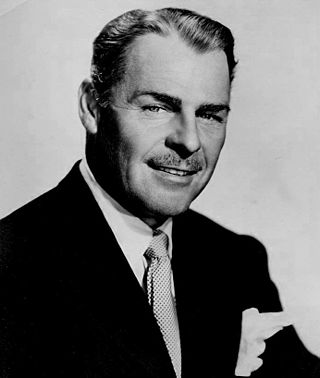
Waldo Brian Donlevy was an American actor, who was noted for playing dangerous and tough characters. Usually appearing in supporting roles, among his best-known films are Beau Geste (1939), The Great McGinty (1940) and Wake Island (1942). For his role as the sadistic Sergeant Markoff in Beau Geste, he was nominated for the Academy Award for Best Supporting Actor.
Underworld is a 1927 American silent crime film directed by Josef von Sternberg and starring Clive Brook, Evelyn Brent and George Bancroft. The film launched Sternberg's eight-year collaboration with Paramount Pictures, with whom he would produce his seven films with actress Marlene Dietrich. Journalist and screenwriter Ben Hecht won an Academy Award for Best Original Story.

Molly Lamont was a South African-British film actress.

Lane Chandler was an American actor specializing mainly in Westerns.

John Ridgely was an American film character actor with over 175 film credits.

Don Barry, also known as Red Barry, was an American film and television actor. He was nicknamed "Red" after appearing as the first Red Ryder in the highly successful 1940 film Adventures of Red Ryder with Noah Beery Sr.; the character was played in later films by "Wild Bill" Elliott and Allan Lane. Barry went on to bigger budget films following Red Ryder, but none reached his previous level of success. He played Red Doyle in the 1964 Perry Mason episode "The Case of the Simple Simon".

Barry Grant is a fictional character from the British Channel 4 soap opera Brookside, played by Paul Usher. The character debuted on-screen during the first episode of Brookside, broadcast on 2 November 1982. Barry is one of the show's original characters and the only character to appear in the first and final episodes of Brookside. Usher decided to leave Brookside in 1984, but returned the following year and remained a regular cast member until 1995. He then returned for guest stints in 1997 and 2003. Actor Joe McGann was originally cast as Barry, but when McGann failed to gain an actors equity card, producers decided to recast the role to Usher. Barry is characterised as a "hard man" and constant law breaker. Writers transformed Barry into Brookside's long-standing villainous character. Despite his hard man characterisation, Barry has a special relationship with his mother Sheila Grant. He would do anything to protect Sheila and to the extent that it created problems with his father Bobby Grant.

The Beast of the City is a 1932 American pre-Code gangster film featuring cops as vigilantes and known for its singularly vicious ending. Written by W.R. Burnett, Ben Hecht (uncredited), and John Lee Mahin, and directed by Charles Brabin, the film stars Walter Huston, Jean Harlow, Wallace Ford, Jean Hersholt, and Tully Marshall.

The Star Boarder is a 1914 American short comedy film starring Charlie Chaplin. The film is also known as The Landlady's Pet, its 1918 American reissue title.
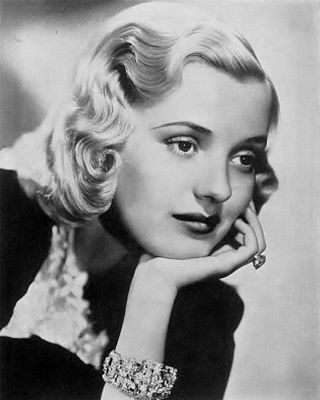
Phyllis Brooks was an American actress and model. She was born Phyllis Seiler in Boise, Idaho. Some sources have also inaccurately cited 1914 as her year of birth, but 1915 is the correct year according to Social Security records.
Grand National Films, Inc was an American independent motion picture production-distribution company in operation from 1936 to 1939. The company had no relation to the British Grand National Pictures.

Crossroads is an American television anthology series based on the activities of clergy from different denominations. It aired from October 7, 1955, to September 27, 1957, on ABC. The show was retitled The Way of Life for syndication.
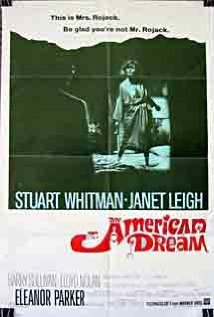
An American Dream is a 1966 American Technicolor drama film directed by Robert Gist and starring Stuart Whitman and Janet Leigh. It was adapted from the 1965 Norman Mailer novel of the same name. The film received an Oscar nomination for Best Song for "A Time for Love," music by Johnny Mandel and lyrics by Paul Francis Webster.

O.H.M.S. is a 1937 British adventure film directed by Raoul Walsh and starring Wallace Ford, John Mills, Anna Lee and Grace Bradley. The film score was composed by Jack Beaver.

Mary Burns, Fugitive is a 1935 American drama film directed by William K. Howard.

Born Reckless is a 1937 American gangster film directed by Malcolm St. Clair and Gustav Machatý and starring Brian Donlevy and Rochelle Hudson. Donlevy plays a race-car champion who infiltrates a mob-run taxi cab company. Barton MacLane plays the chief mobster.

Charles Cahill Wilson was an American screen and stage actor. He appeared in numerous films during the Golden Age of Hollywood from the late 1920s to the late 1940s.
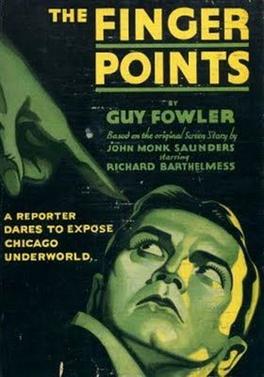
The Finger Points is a 1931 American Pre-Code drama film directed by John Francis Dillon and written by John Monk Saunders, W.R. Burnett and Robert Lord. The film stars Richard Barthelmess, Fay Wray, Regis Toomey, Robert Elliott, Clark Gable, Oscar Apfel and Robert Gleckler. The film was released by Warner Bros. on April 11, 1931.
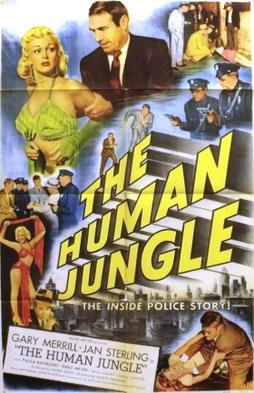
The Human Jungle is a 1954 American film noir crime film directed by Joseph M. Newman and starring Gary Merrill, Jan Sterling and Regis Toomey. It was produced and distributed by the Hollywood studio Allied Artists.


















